SomaliaMap
March Somalia is a failed state where the government is barely able to maintain control of the capital alone, none of the social institutions function, half the population has fled the country, a civil war has been going on for the past 20 years, and every child knows how to hold a machine gun and rob people in the street from a young age. MogadishuMapFrom a distance, the city looks brand-new: the roofs all glisten like shiny foil in the sun. All these buildings were destroyed during the lengthy civil war and have only been rebuilt in the last few years. The other half of the buildings still have old, rusted, half-collapsed roofs. They blend with the ground when viewed from above. 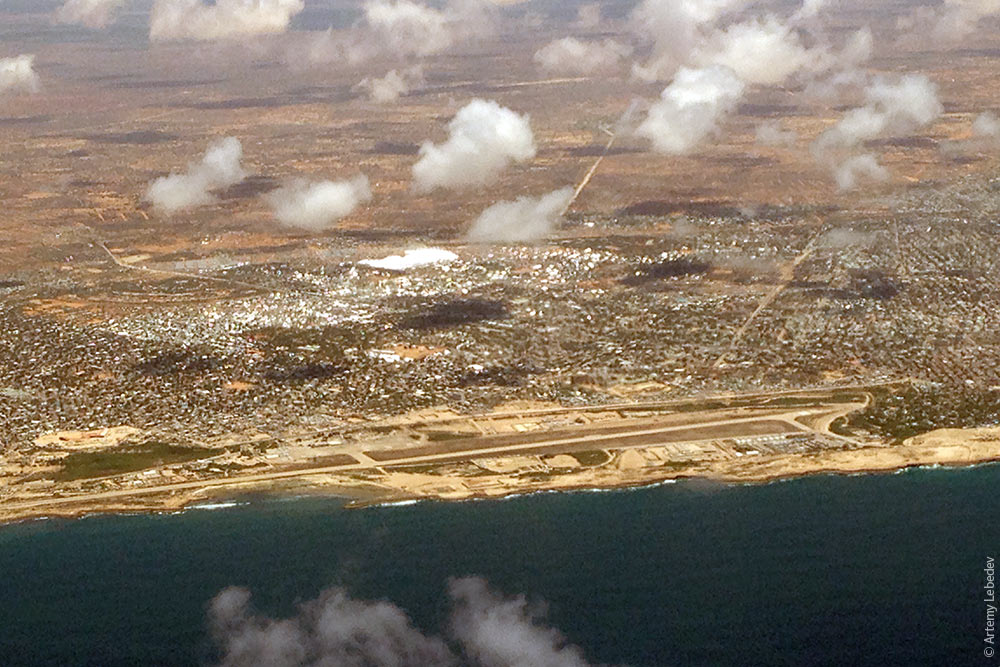 A few brave civilized airlines now fly here. This is the checkpoint you pass through when you leave the airport. 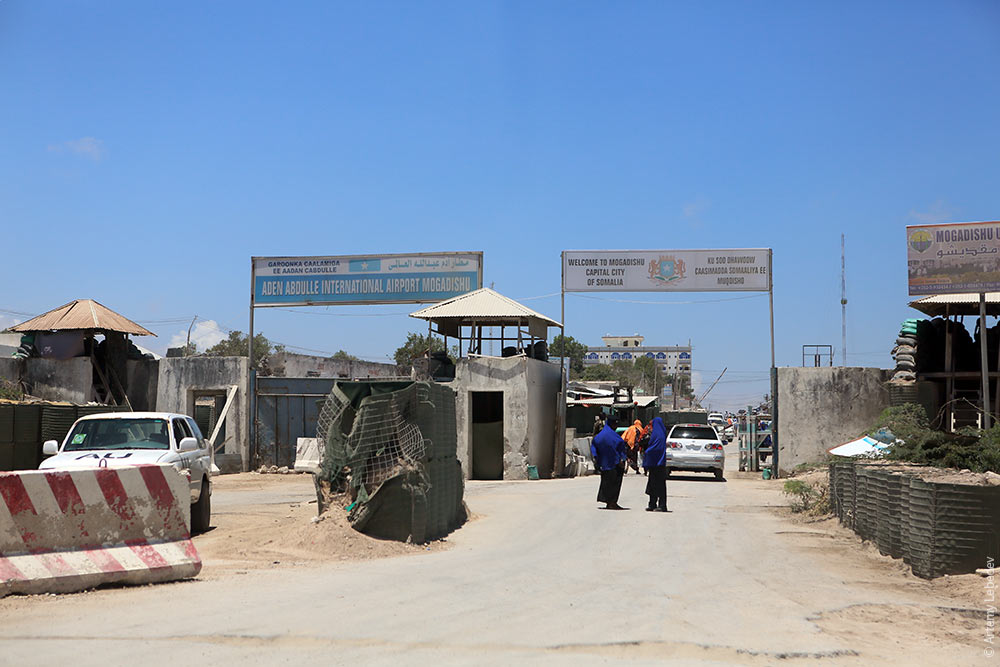 Morale-raising billboards are set up along the central streets. 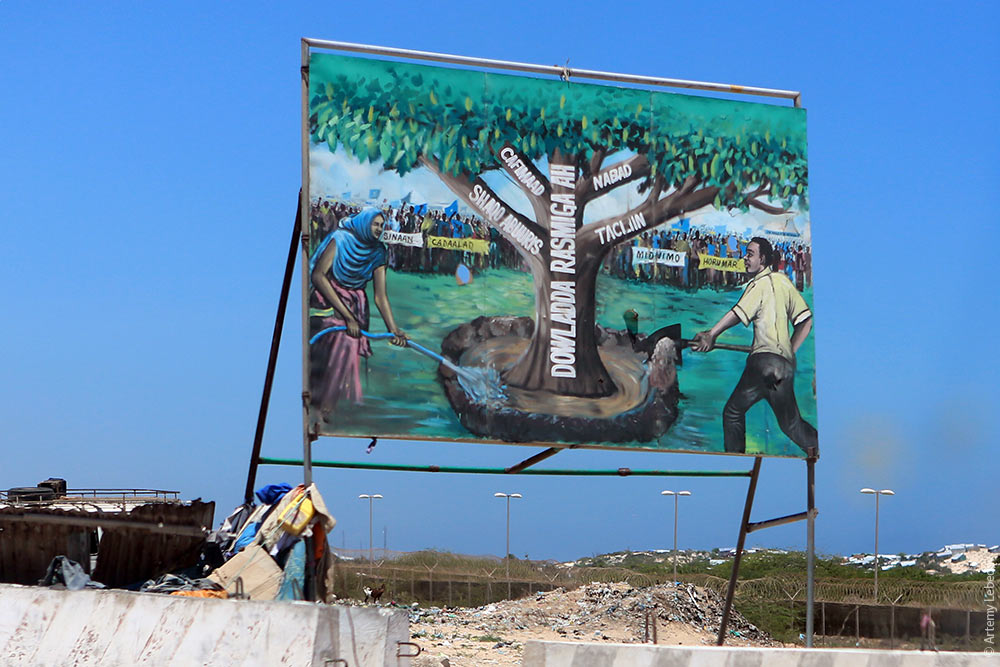 A typical street. 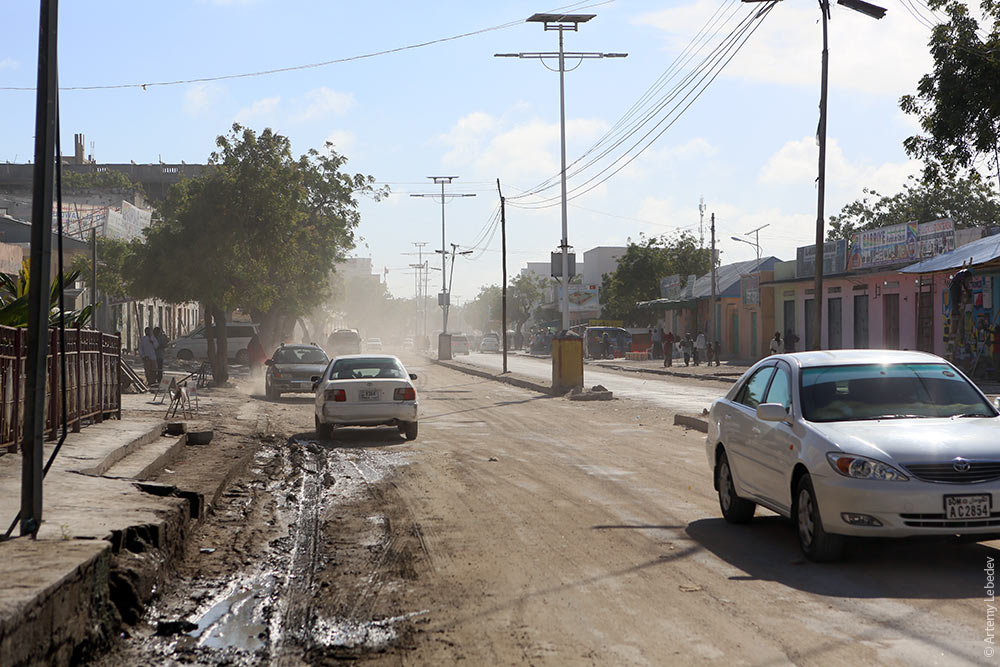 The city is continuously patrolled by armored vehicles. 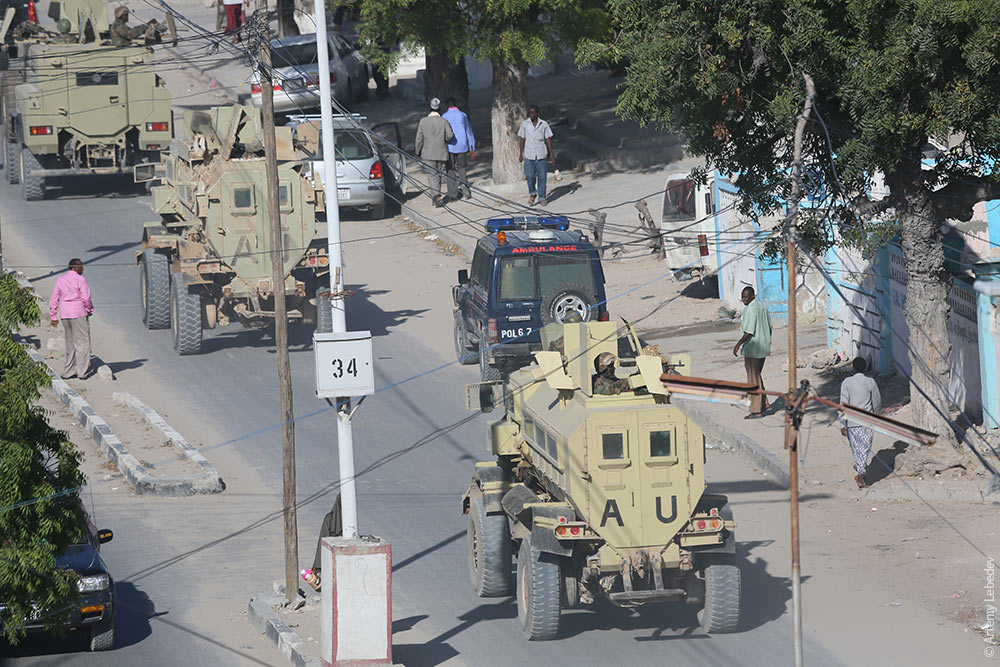 And Jeeps full of armed personnel. 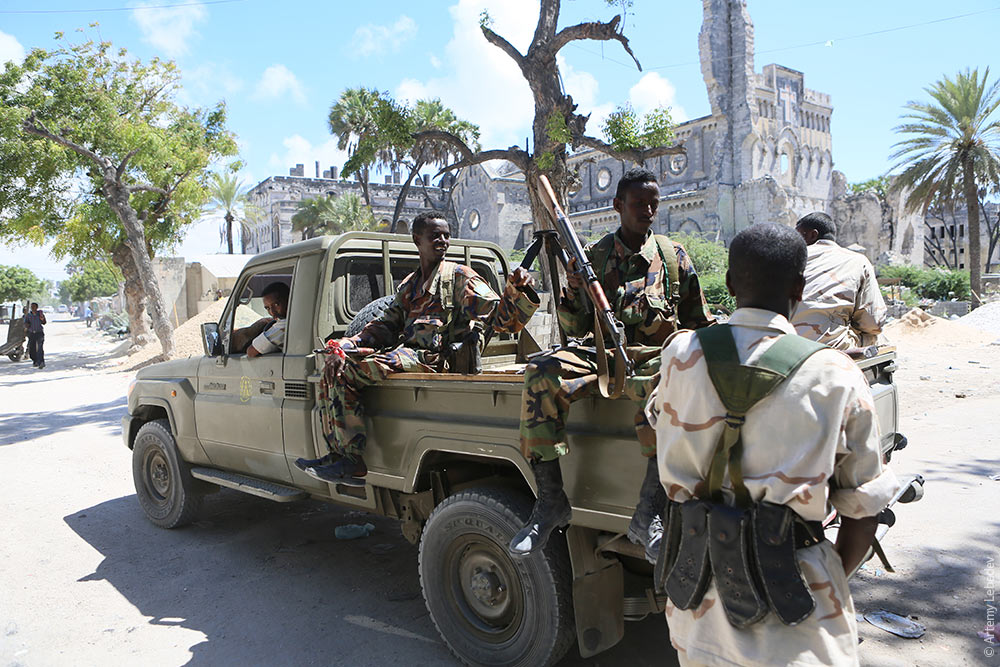 Gasoline is expensive, so public transportation runs infrequently and is always jam-packed. You can sit on the roof; you have to stand in the open doorway. 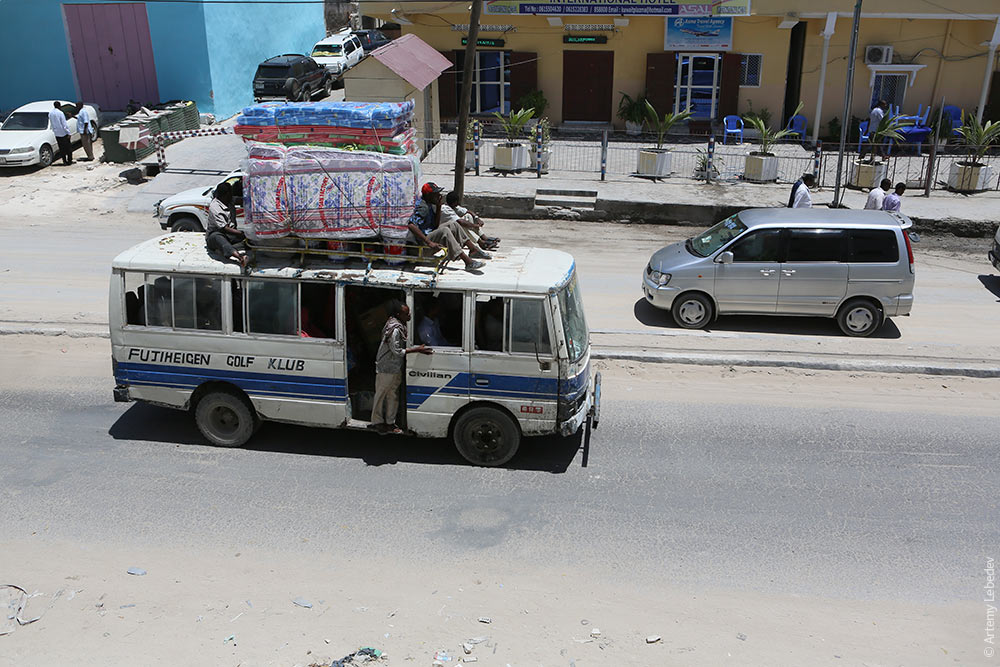 A license plate. 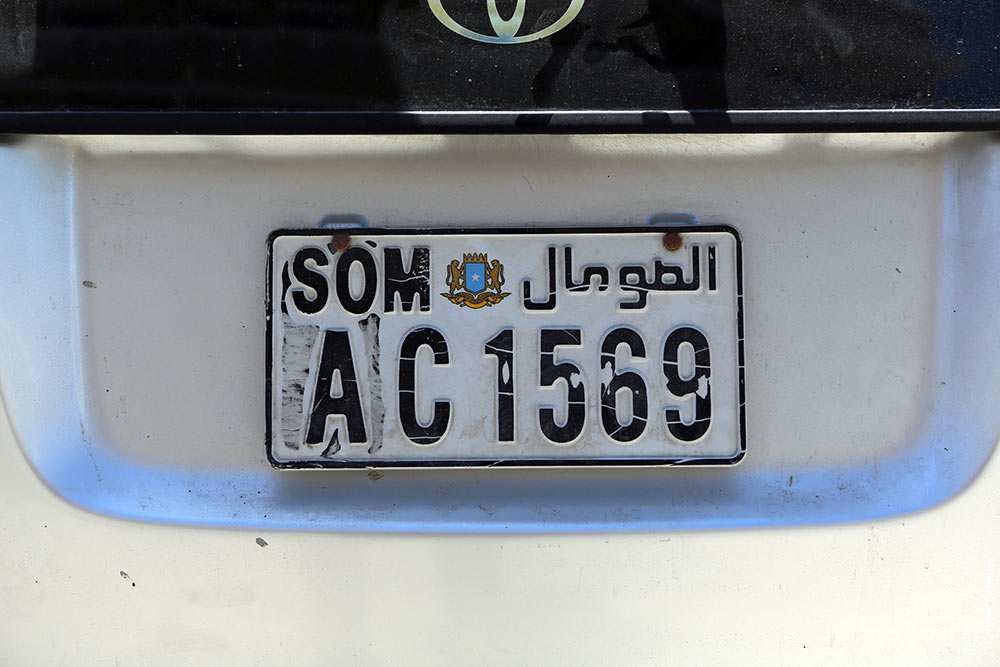 A view of a cozy refugee camp. 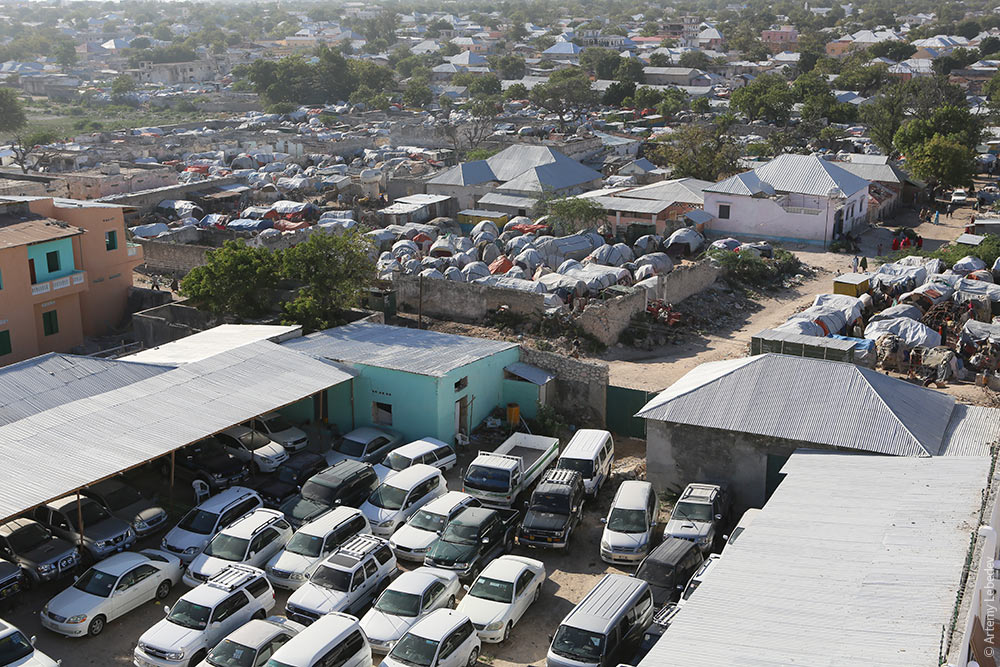 It’s fun here. 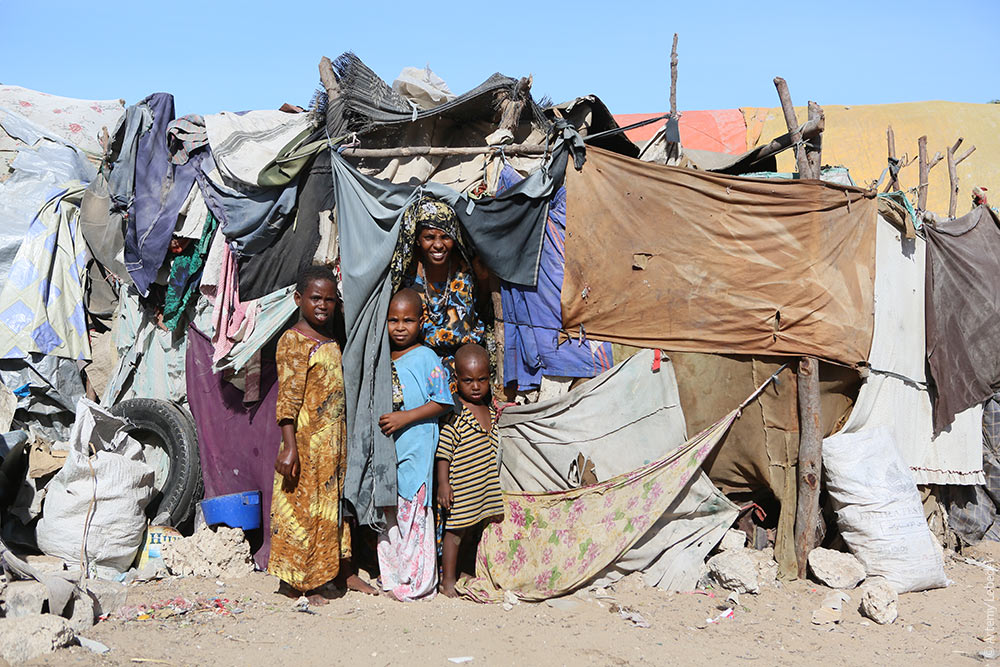 The bombed-out buildings blend nicely into the urban landscape. 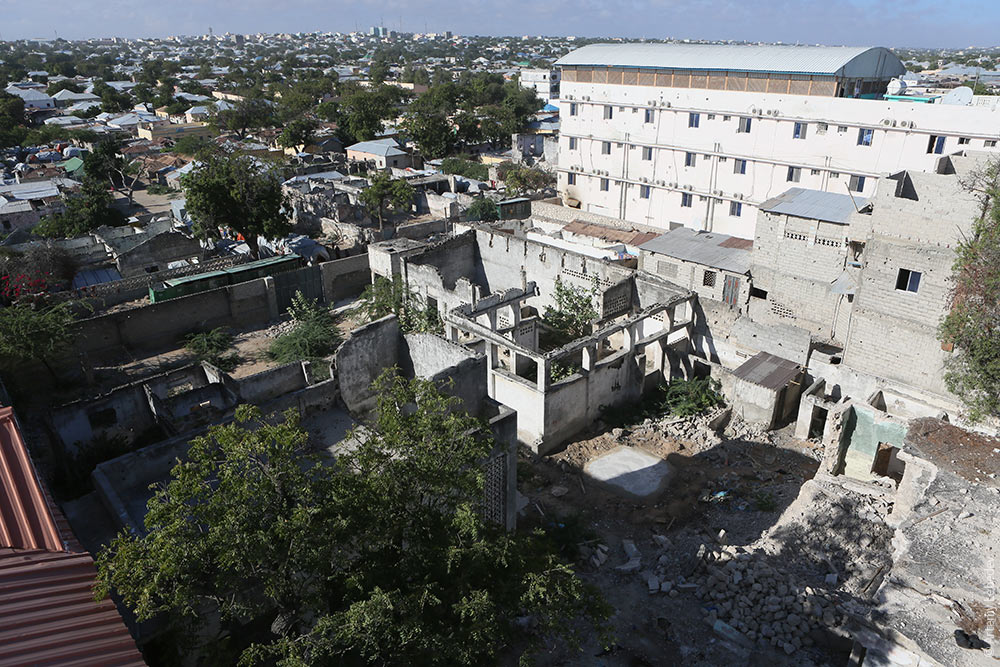 Ruins amidst new roofs. 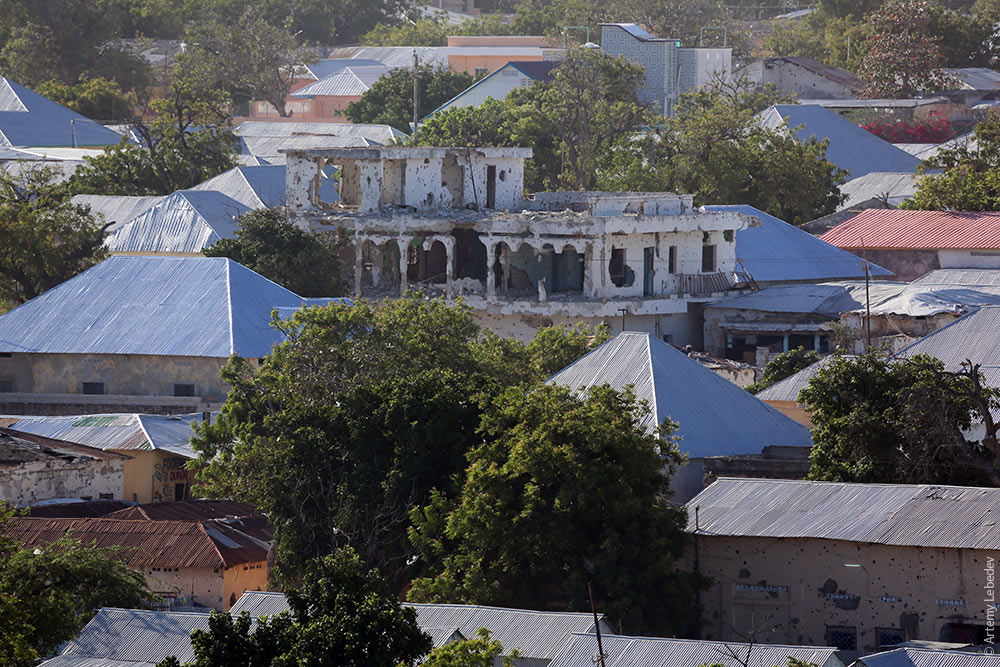 It was beautiful here once. 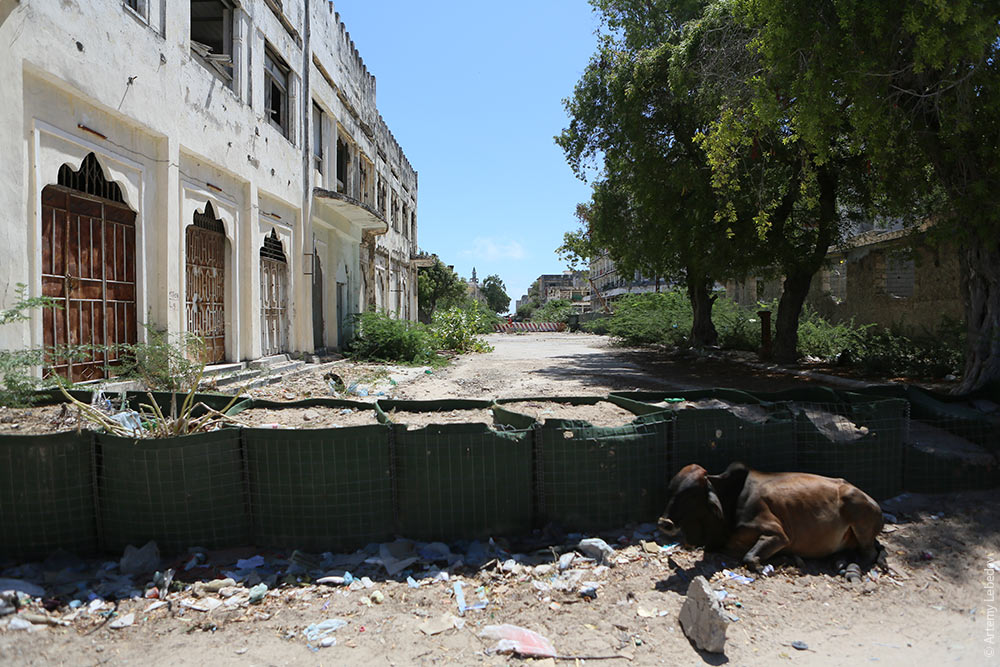 The cathedrals functioned. 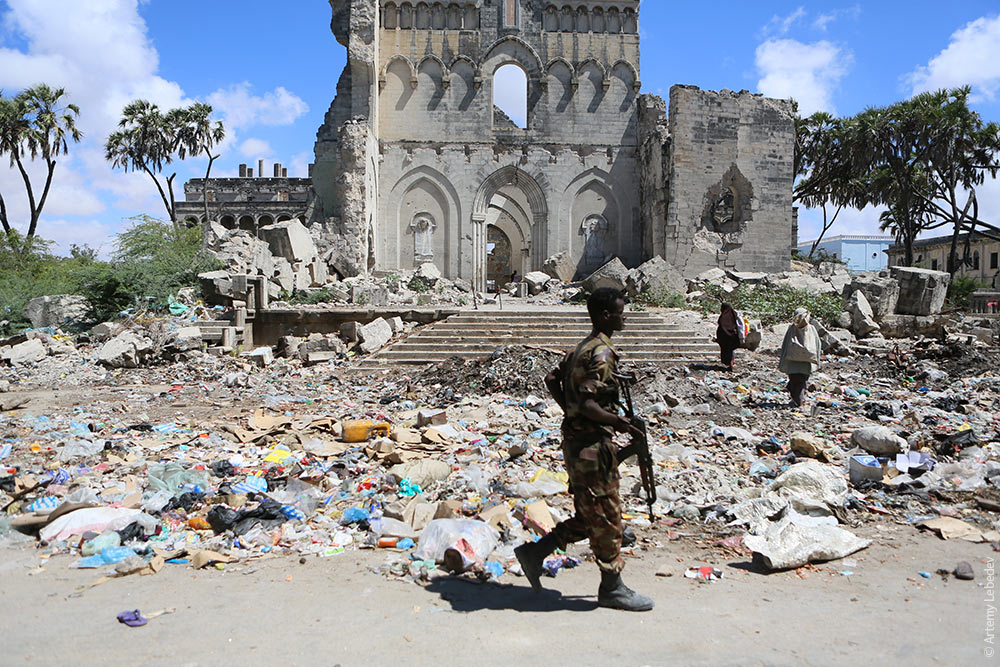 People strolled around the city. 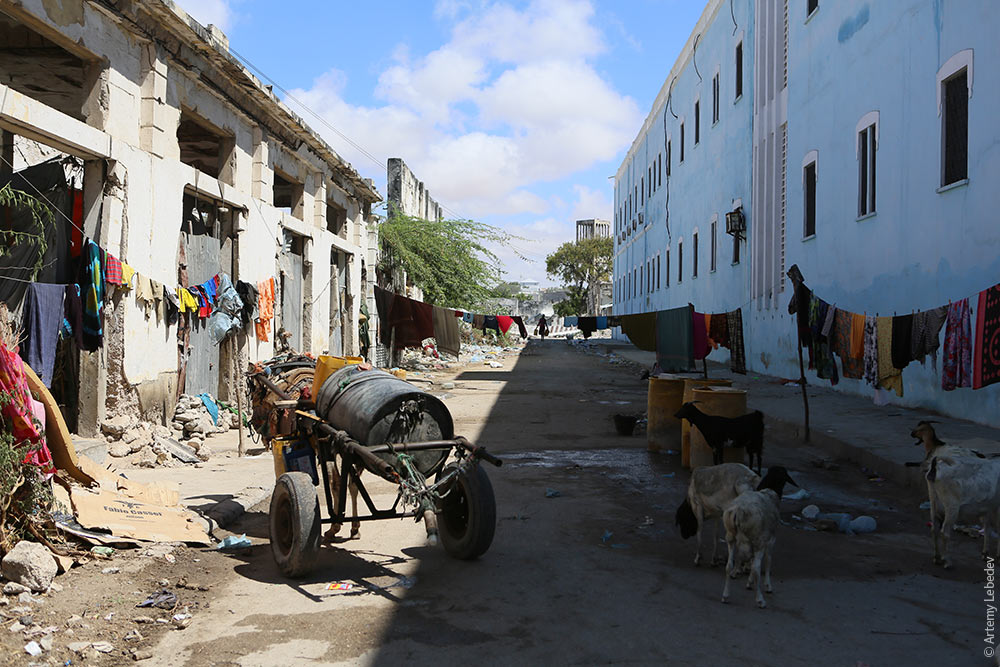 The houses were inhabited. 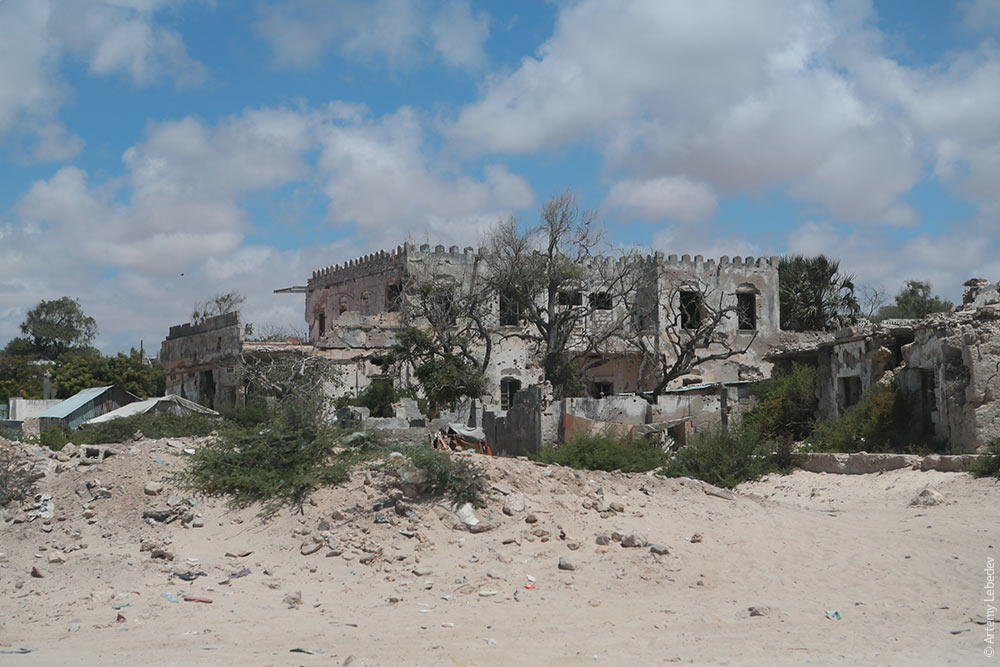 Now everything is in ruins. 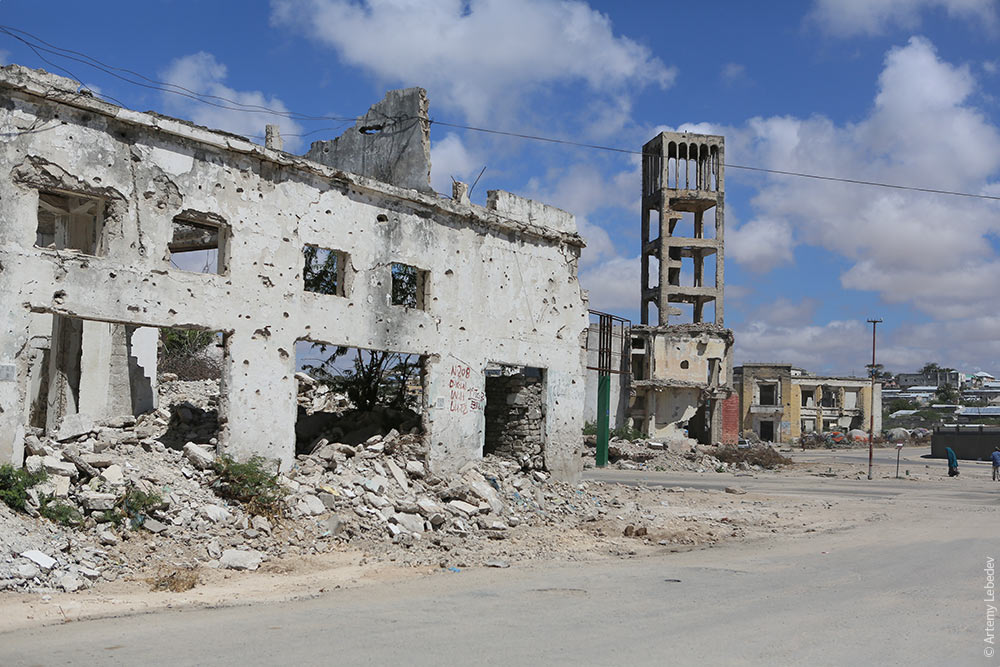 Heaps of rocks lie where buildings once stood. 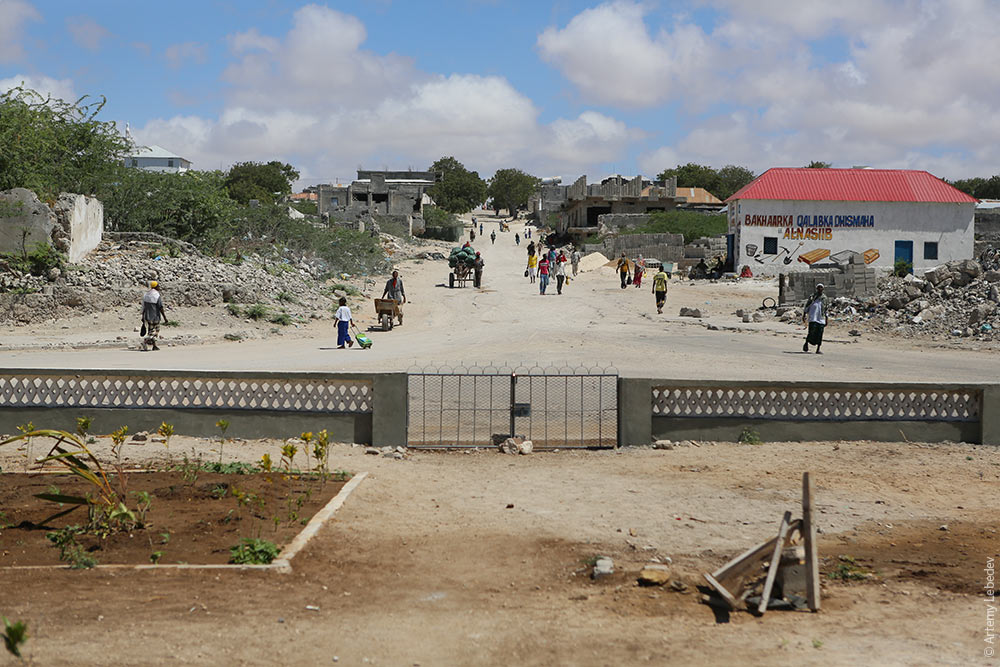 Although there continues to be no centralized power in the country, the city is gradually being rebuilt. Somalis are returning home from all over the world and toiling from dawn till dusk to build a new life. 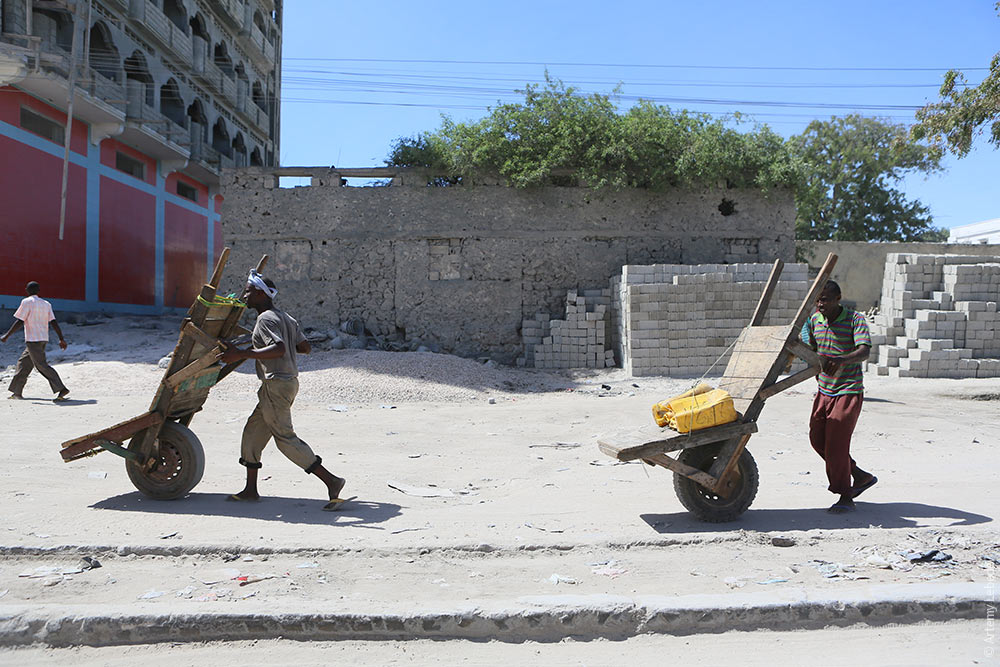 The rebuilt parts—for instance, the new playing field—look completely unreal in contrast with the total destruction all around. 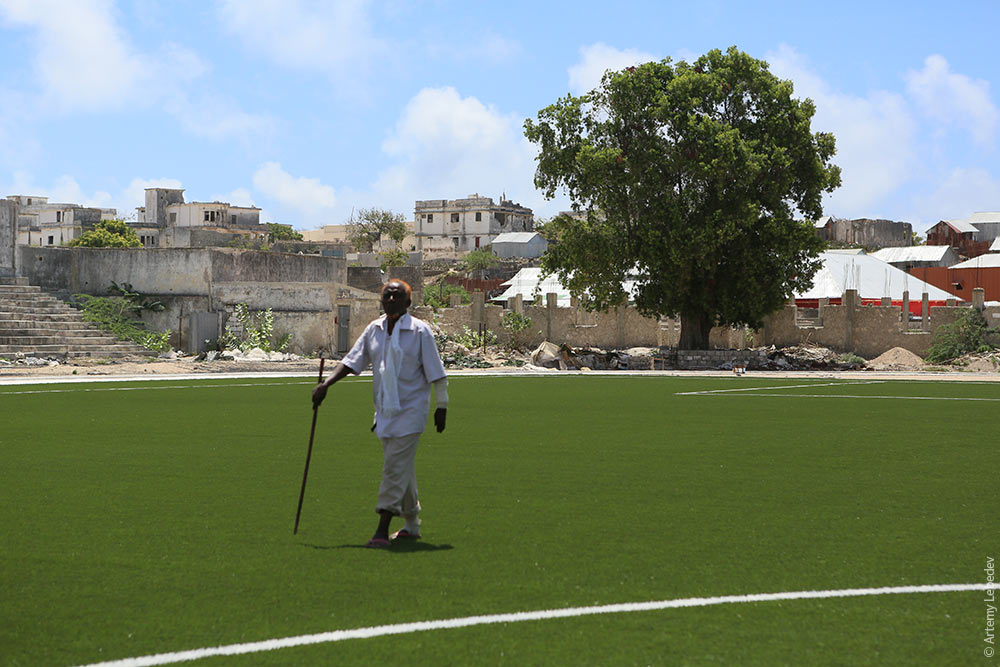 Money is short. Broken dinner plates have been resourcefully put to use as tiles around the main monument. 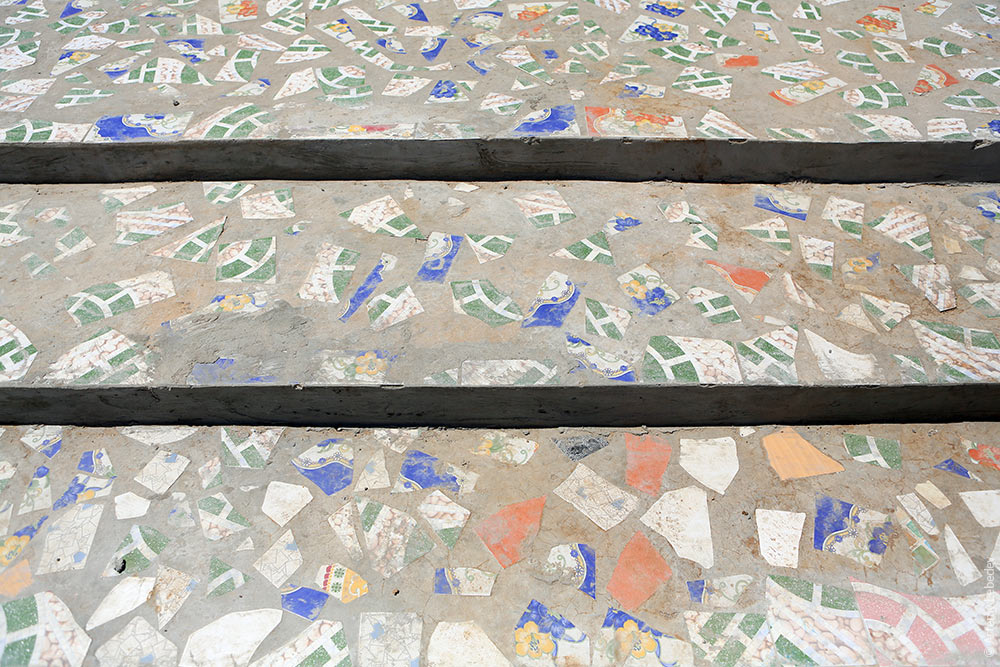 Construction materials for sale: concrete bricks, paving blocks, etc. 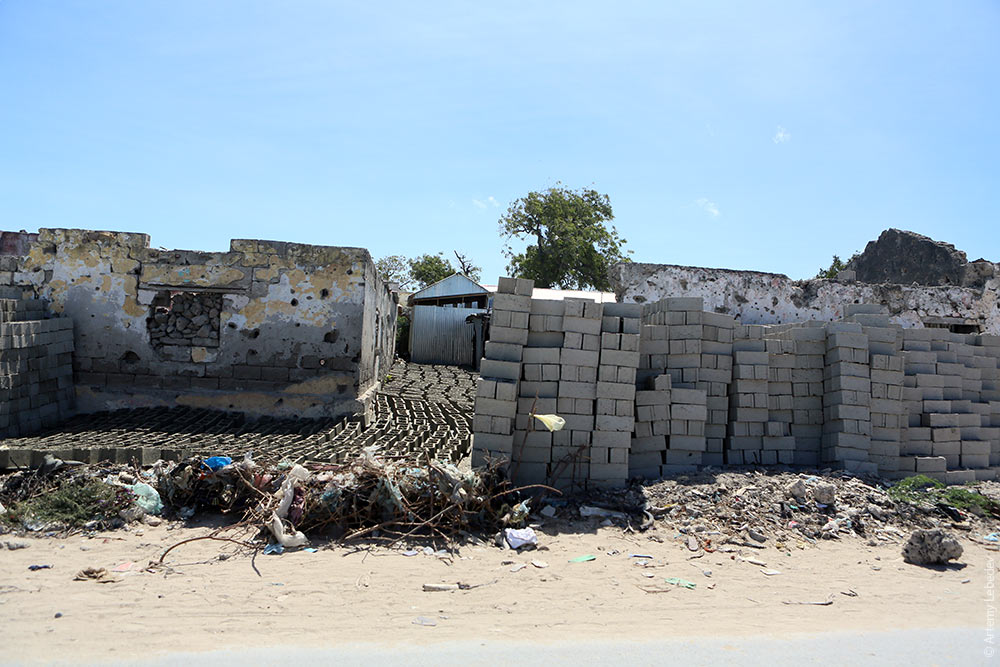 The likelihood of terrorist acts is still very high in the city. So every building tries to fence itself off from the roadway with whatever it can. Oxygen tanks dug into the ground, for instance, or metal pipes filled with cement. 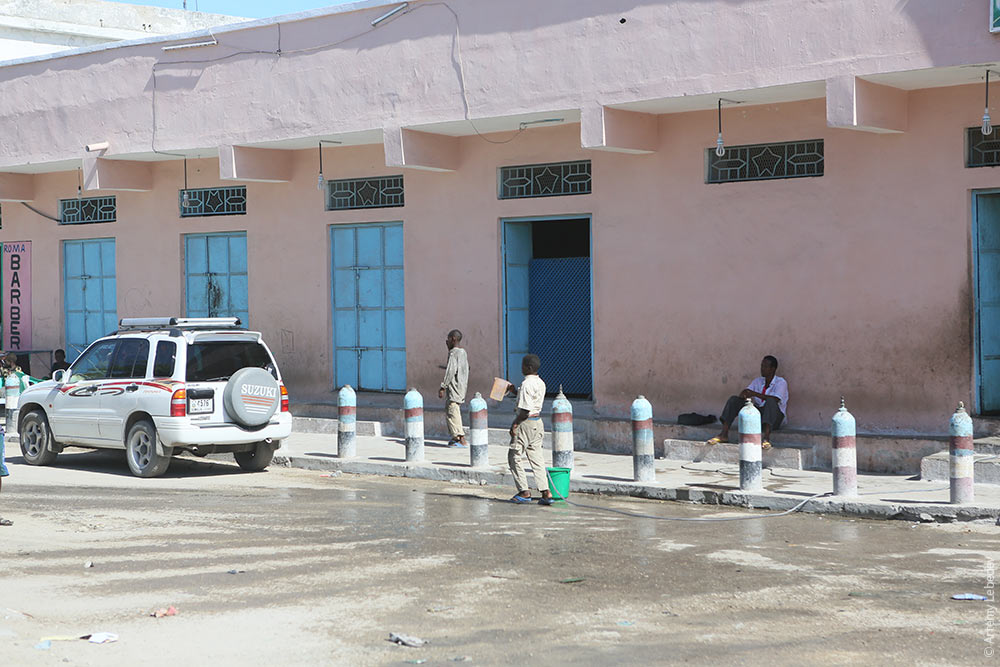 An axle with a differential also makes an excellent bollard. 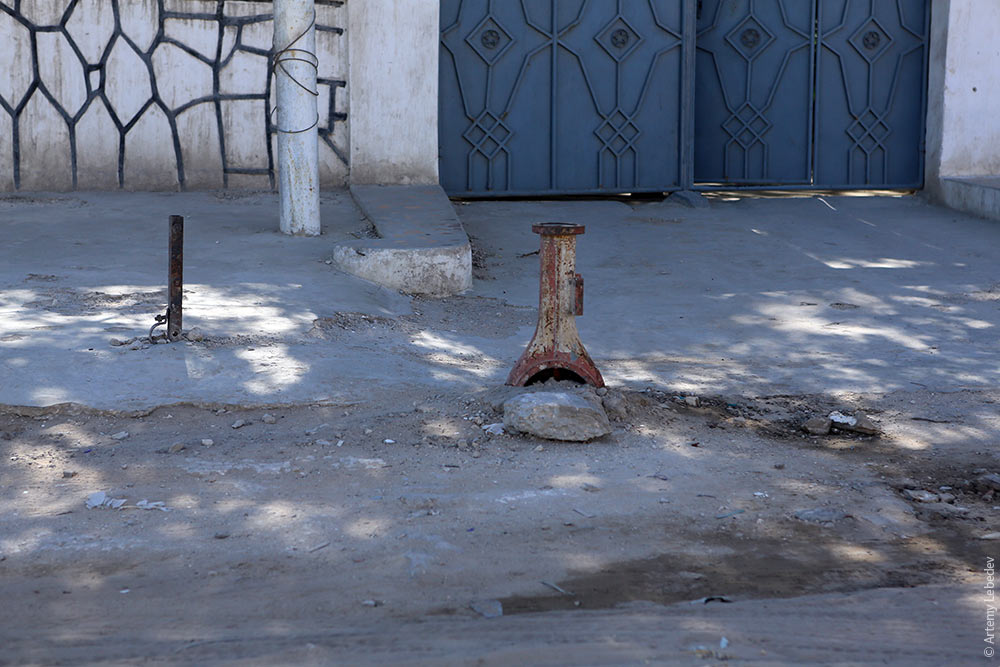 Large wire baskets filled with construction debris and topped off with cement are placed outside every more or less important building. This is cheap and effective: it would stop even a truck. 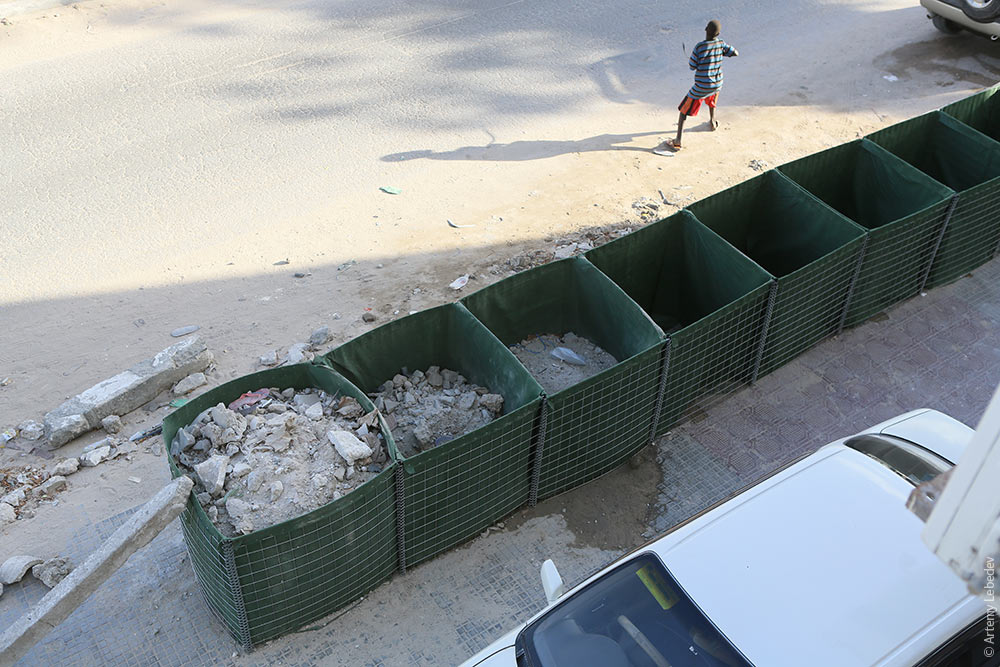 After all, it’s not like a “no trucks” sign is going to stop anyone in Africa. 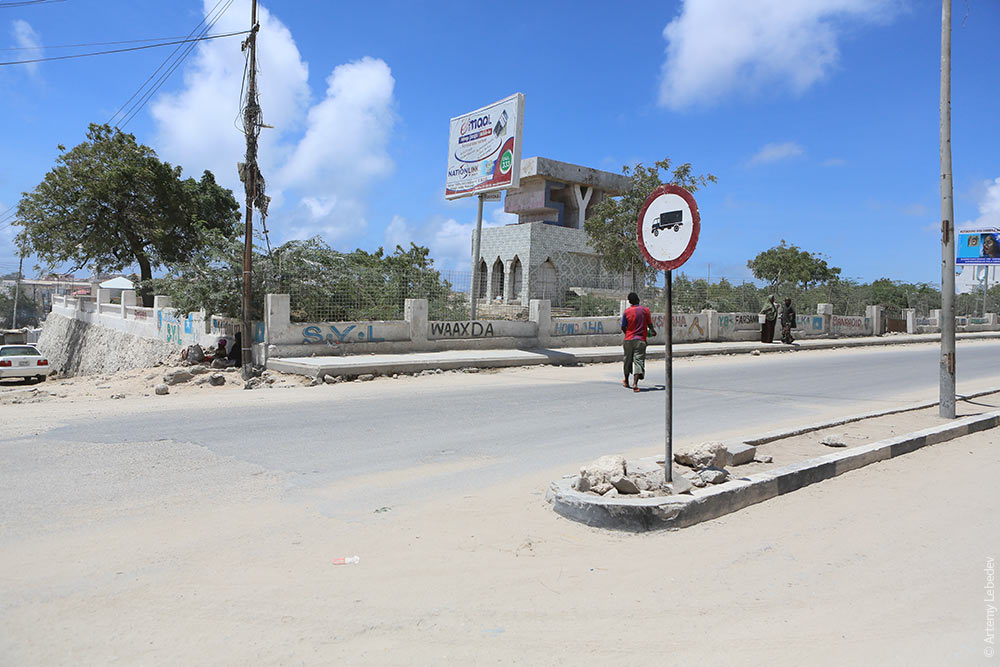 Sometimes you encounter traces of former grandeur. A trash dumpster. 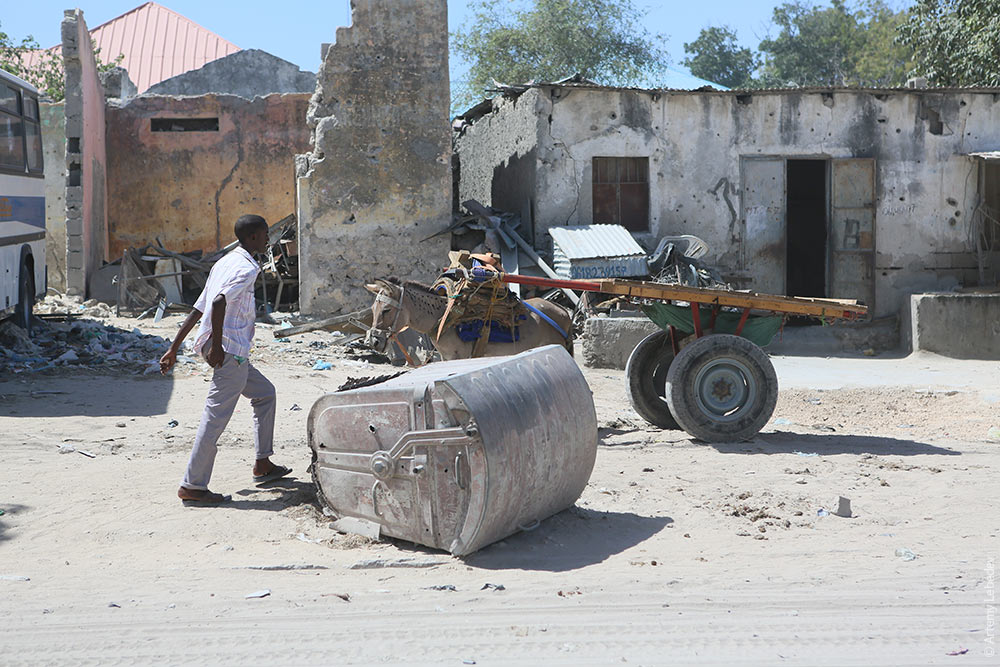 A post box. 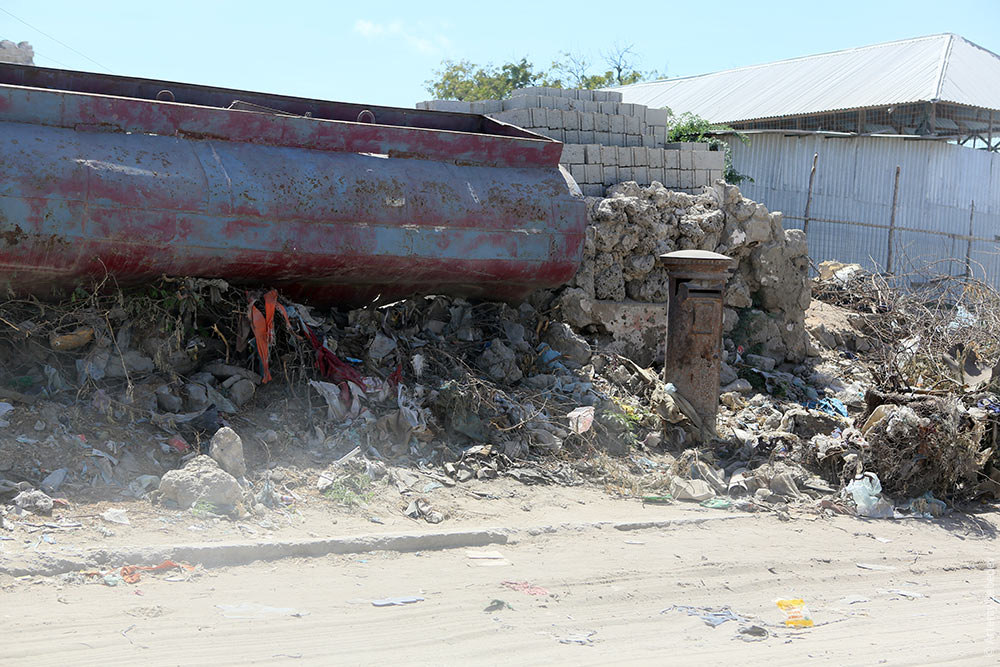 A gas station. 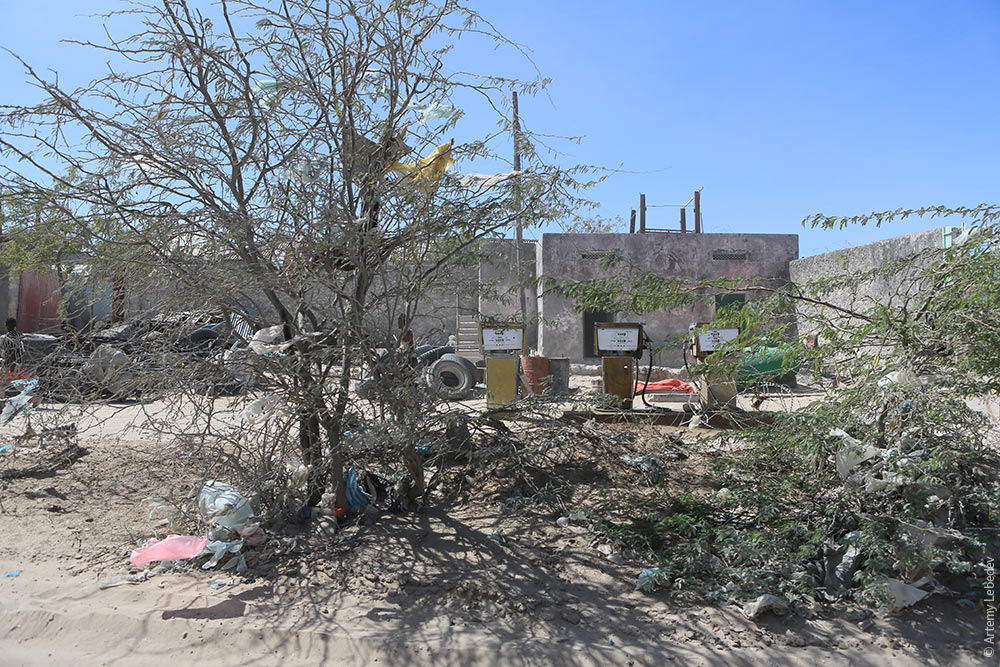 A Lamborghini dealership. 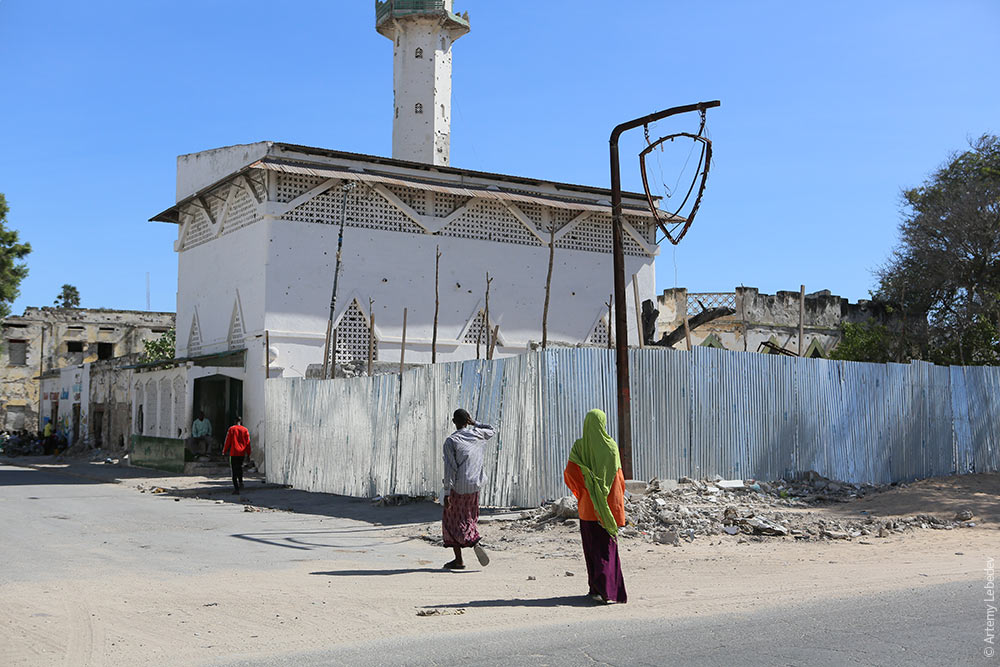 A traffic light. 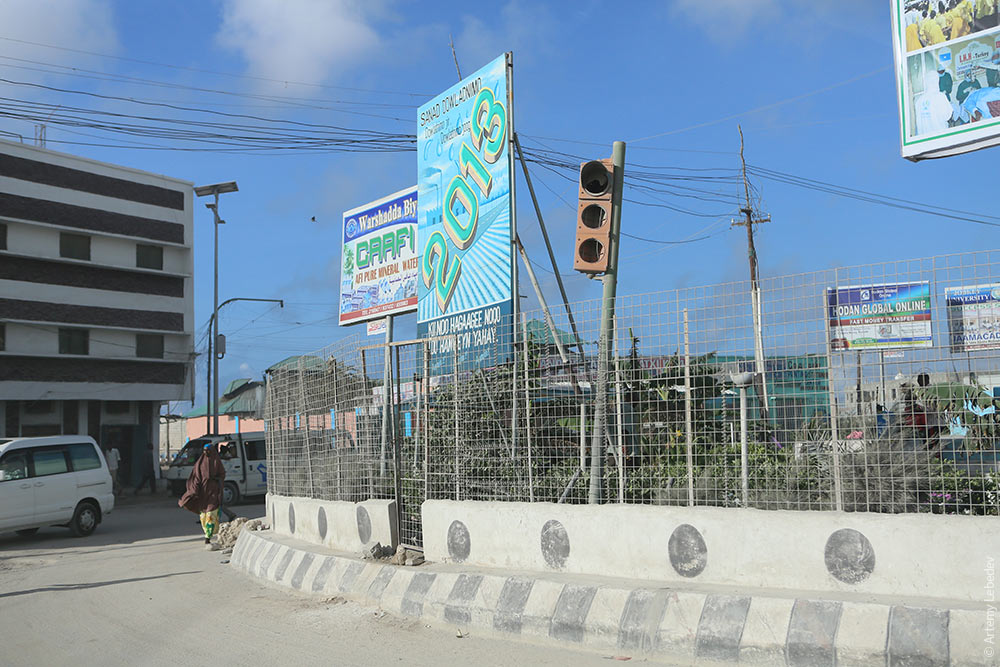 Every store’s façade is covered with illustrations of the items available for sale (like in Somaliland). 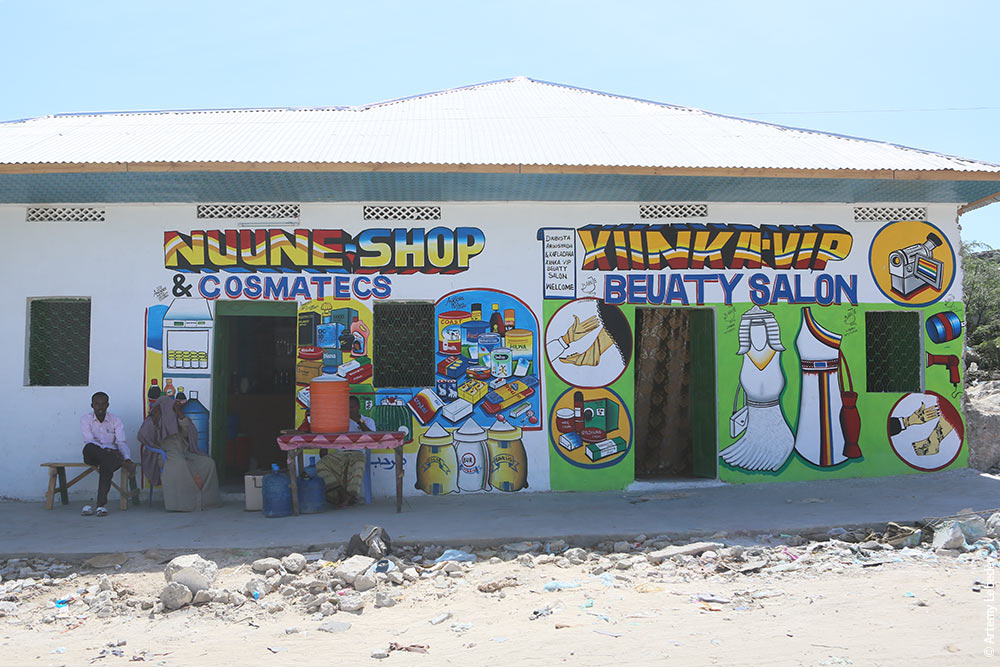 A dental clinic. 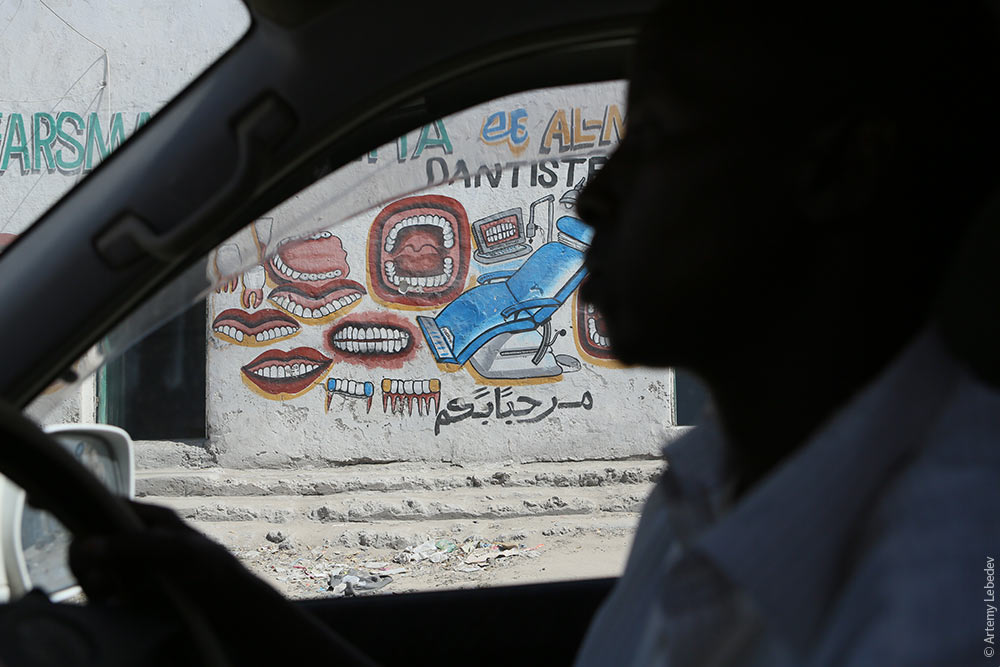 A doctor’s office with the requisite advertisement for circumcision. 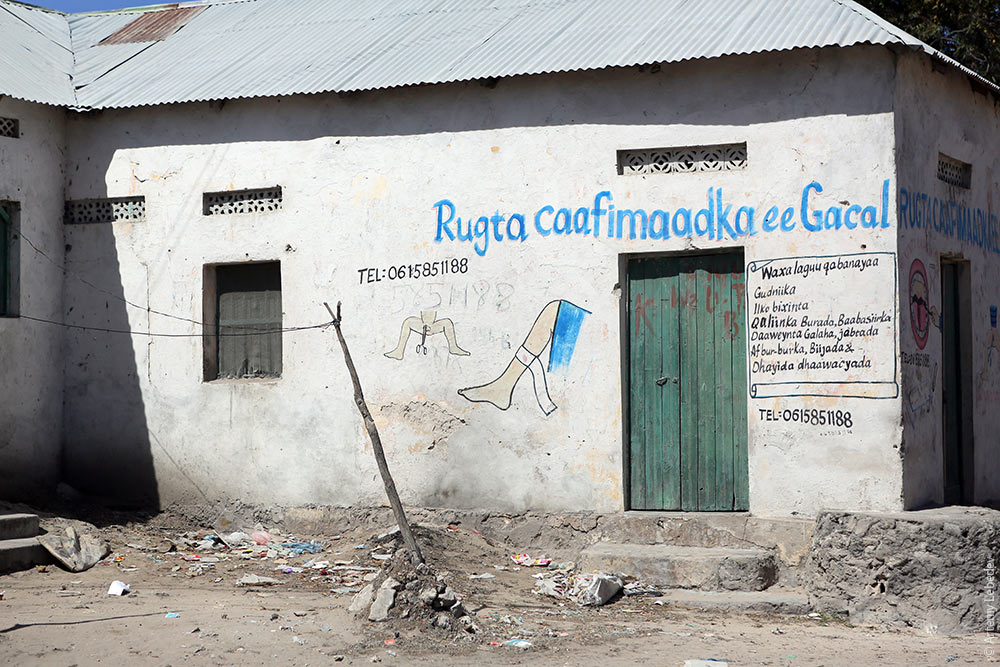 Tourists are non-existent here. 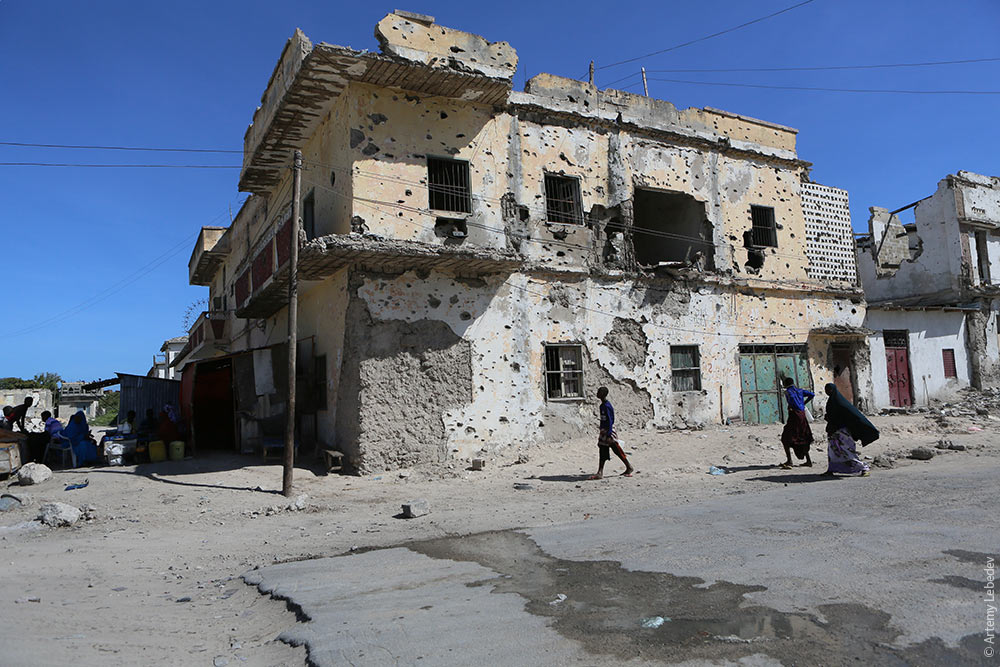 A car assembled out of spare parts. 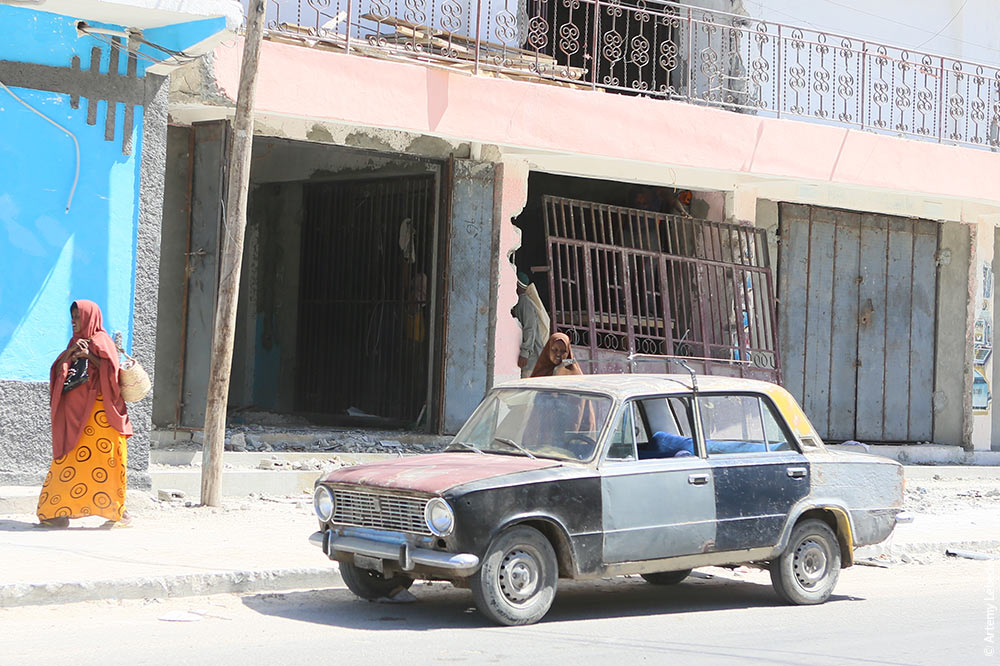 And you’re lucky if you have that. Practically all the trucks on the roads are either missing a window or have no trace of a cab whatsoever. 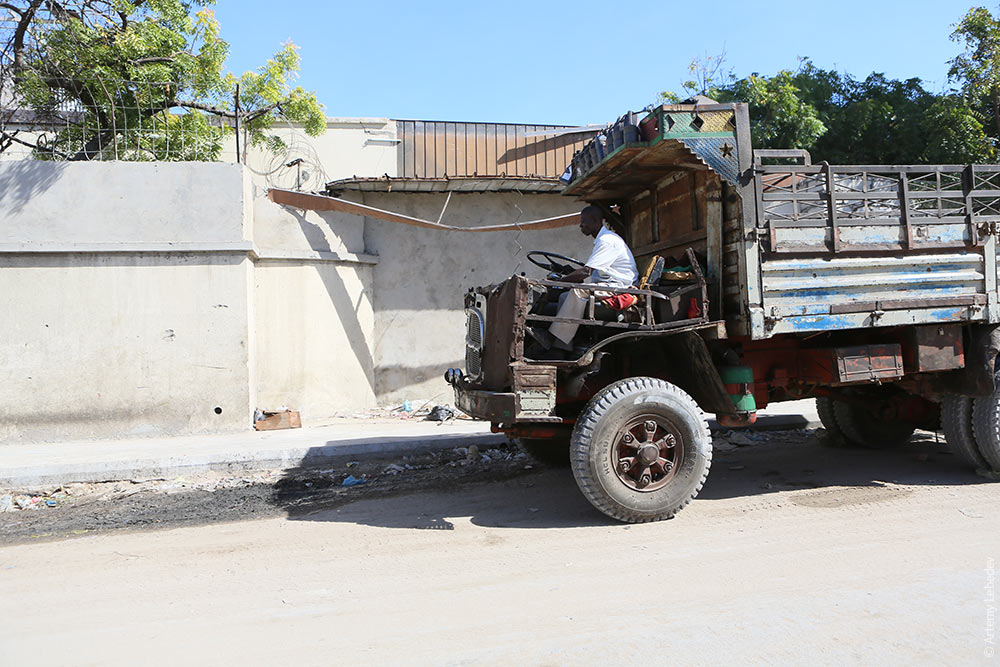 A couple of years ago, an Ilyushin Il-76 from Belarus attempted to land here and was shot down. Another Belarussian Il-76 flew in to the rescue. It salvaged the cargo from the first plane, ripped out the engines and everything else of value—and was shot down as it tried to take off. The remnants of the first plane were simply left lying in the street next to the airport. The remnants of the second rest at the bottom of the sea. 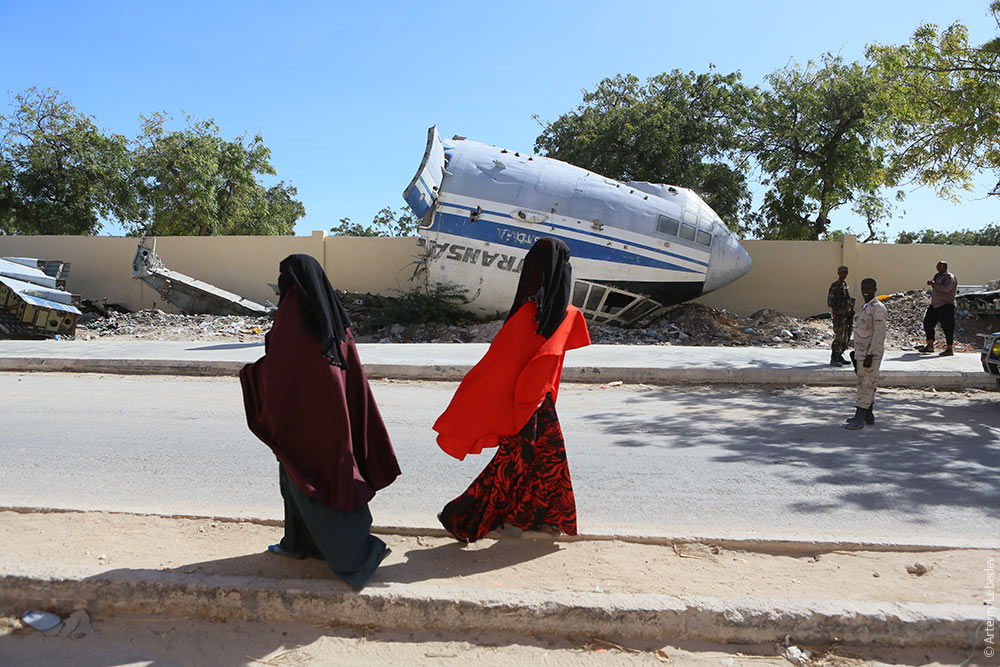 A beach patio at a restaurant for the wealthy. 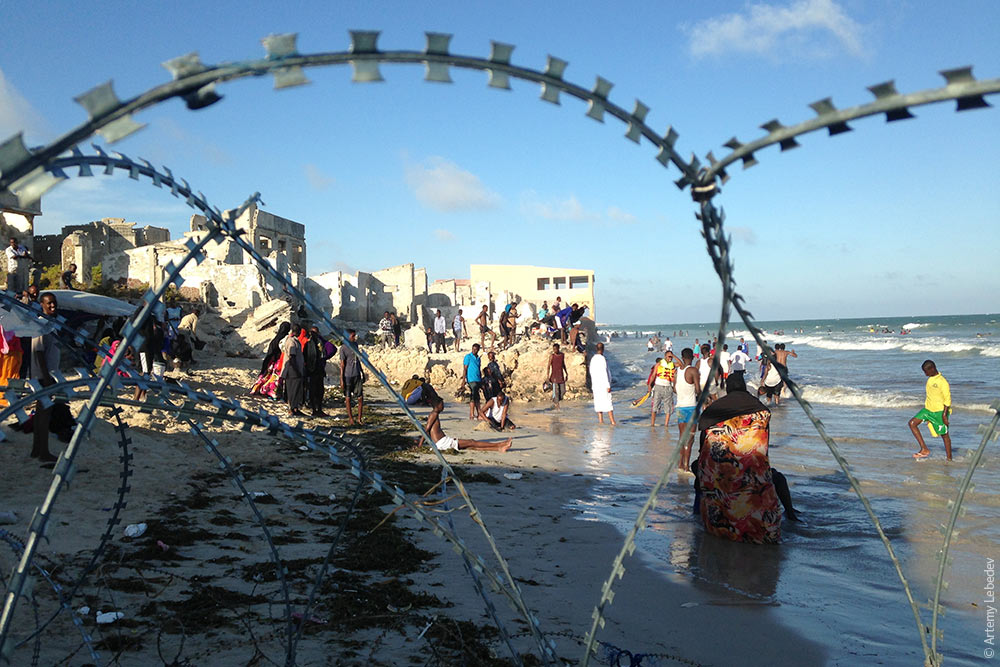 The policemen here carry around something resembling a cross between a conductor’s baton and a crop. Bystanders and children careless enough to get in the way are whacked across the back at a moment’s notice. 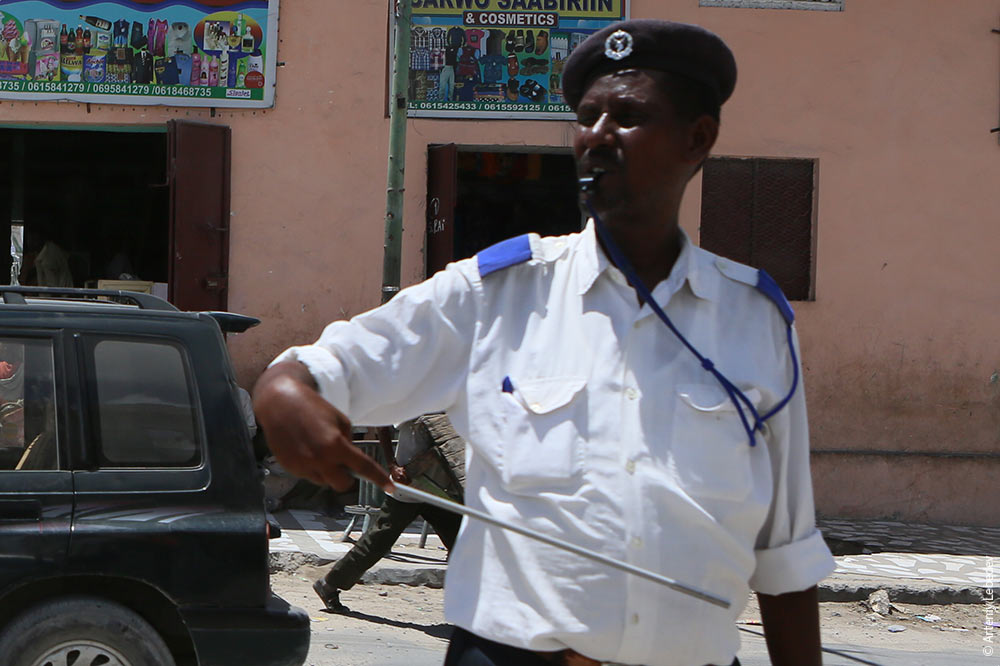 Somalia inherited a wonderful tradition from the Italian colonists: making espresso. Even the seediest dives have an espresso machine. 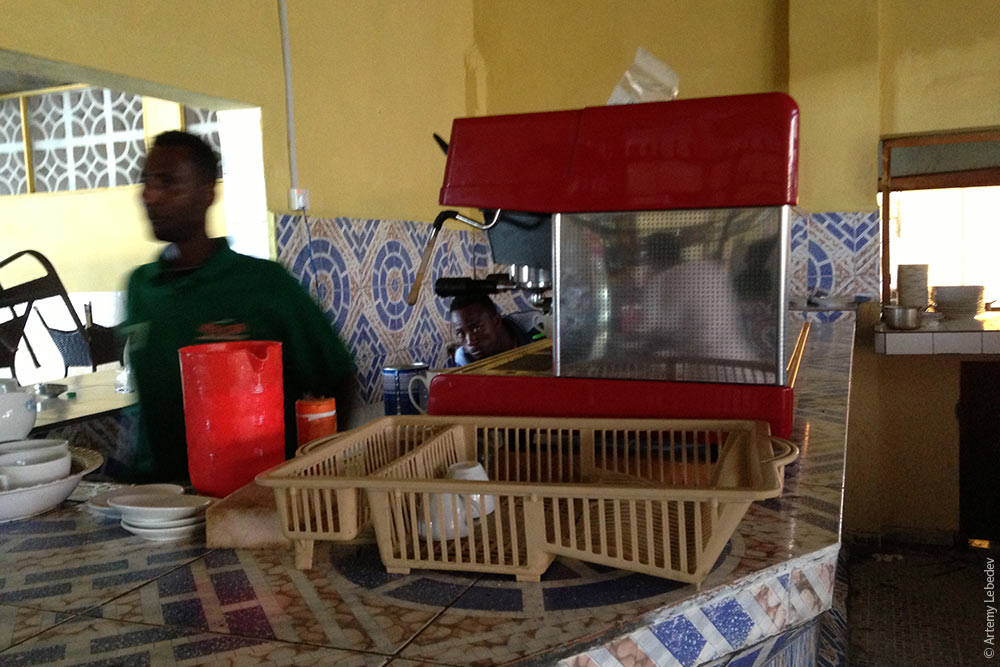 An unbelievable service has evolved here: the option to pay for absolutely anything using your cell phone. Every café, restaurant, and cinema has its number posted on the wall. You can dial this number from your phone, enter the bill amount, and voilà—payment complete. No need to carry any cash around. 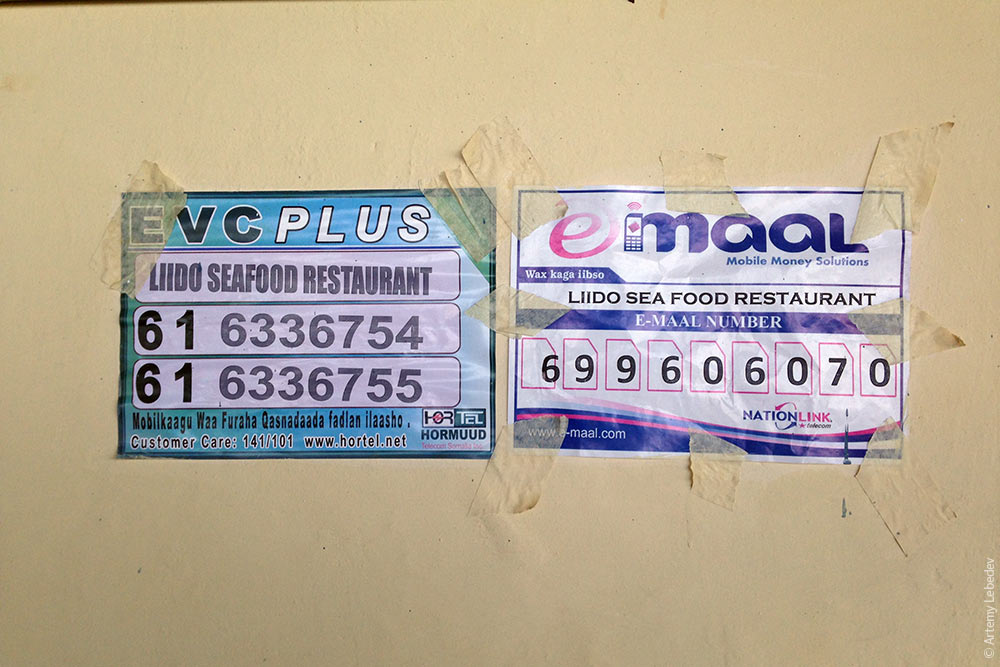 In a couple of days, a car filled with explosives will blow up outside the presidential palace, killing multiple people. 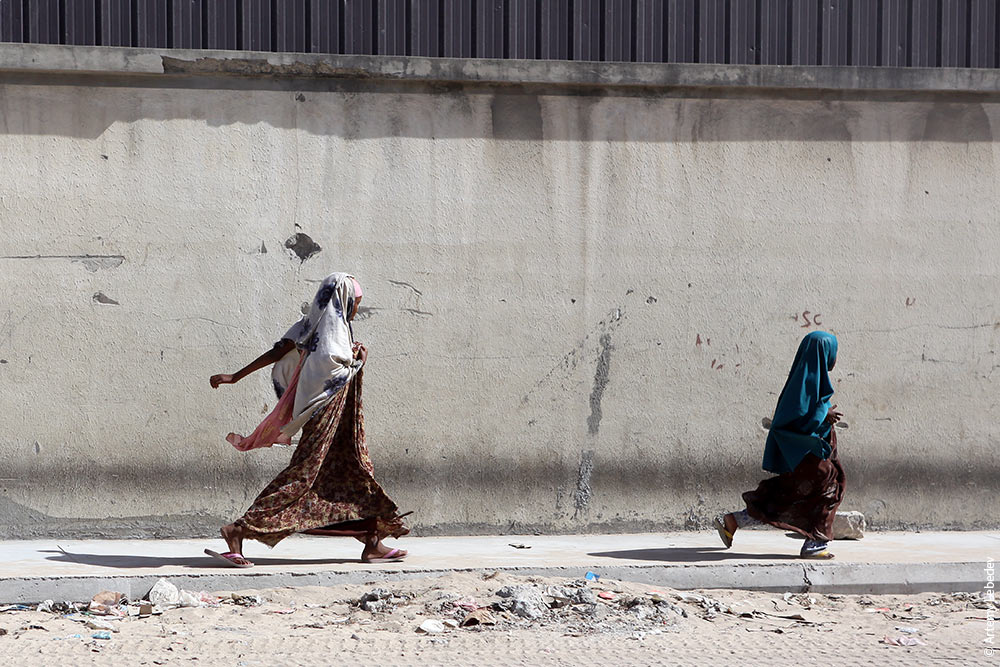 |